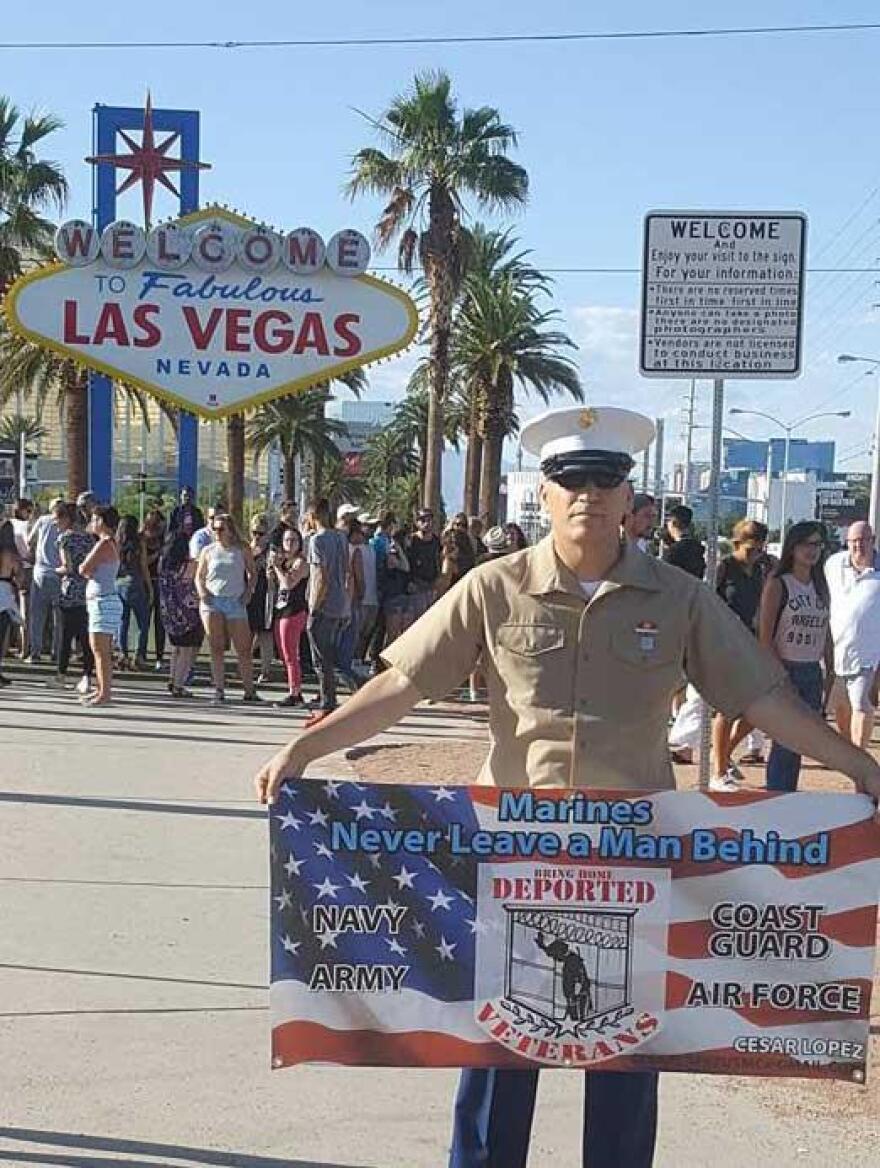Brought here illegally by his parents when he was 4, Cesar Lopez grew up in the United States.
When he graduated from high school in Los Angeles, he immediately joined the Marines.
“I didn’t go to my senior prom because I loved this country so much that I just wanted to serve the country and I joined the Marines,” he said.
He served two years in the Marines.
And years later, while returning to the country from Costa Rica, he was detained in Houston – and deported. Lopez had a 12-year-old felony drug charge – which a judge dismissed because he cooperated with federal drug enforcement agents.
“[Customs and Border Patrol agents] asked me if I had committed a crime in 2000, I said ‘yes’ and they said that I was a threat to the nation and that I was getting deported.”
While the agreement with the judge would have applied if Lopez was an American citizen, he was actually a permanent legal resident, which means the deal didn't apply to him.
So, he was sent to Mexico, where his parents were from.
On the other side of the border, an Mexican immigration official who took down his story during processing apologized, Lopez said, but told him there was nothing he could do.
So Lopez was sent to a country where he had no family and no home.
On his personal mission to return to his family in the U.S., he went through beatings by Mexican police who saw his military tattoos and considered him a traitor to Mexico.
“All I could do is stay quiet and think of getting home," he said,"I had nothing in Mexico. My whole life is in the U.S. All my family is in the U.S. Everybody is American citizen. I had no choice.”
He made it to Tijuana and made a dangerous four-day trek across the U.S./Mexican border that almost cost him his life.
All of that happened in 2013. Today, he lives in Las Vegas with his wife. He has two children in Texas.
“When I came back, I came back to a different reality for me," Lopez explained, "I returned home not as a veteran, not as a resident alien or permanent resident or a citizen – an American – I came back as an illegal Mexican. I came back home as a wetback.”
This week he is addressing the Hispanic Congressional Caucus as the unofficial spokesman for military veterans who have been deported.
Lopez said when he was in Mexico, he met many other deported veterans. He doesn’t have exact numbers and no one really knows the exact number, he said. One of the aims of his address to the Hispanic caucus will be to get the federal government to start keeping track of deported veterans.
He said his family doesn't want him speaking out about his ordeal, but he believes if he doesn't he's leaving other service members behind, which a Marine does not do.
“It is my duty to bring this injustice perpetrated on our military veterans that they don’t have a chance to speak because they have been quietly and secretly removed from the country that we served and loved,” he said.
Lopez has taken Thomas Jefferson's words - "When law becomes injustice, resistance becomes duty - to heart.
Cesar Lopez, deported U.S. Marine; Fabiola Lopez, wife of Cesar Lopez










